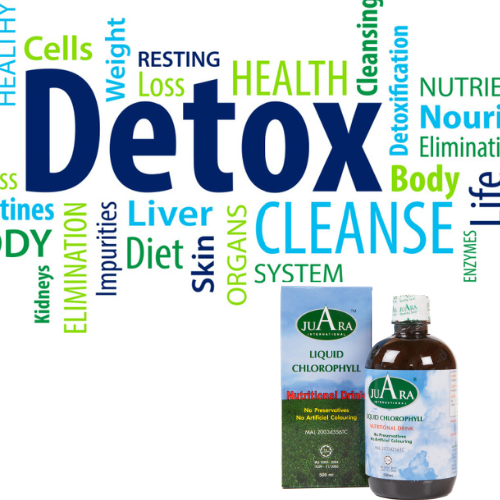These days, it's relatively common knowledge that probiotics can be beneficial for us, playing a significant part in nurturing gut health with is vital for a healthy immune system, mental and emotional wellbeing, reduced inflammation, protection from allergies and healthy skin.
But did you know that good gut health is connected to hormone balance, and probiotics can also play a significant role when it comes to women's health?
Here are six ways that probiotics can positively impact female health.
1) Hormone balance
We need friendly gut bacteria to recycle and metabolise our hormones, including thyroid hormones, oestrogen and phytoestrogens.
This encourages hormone balance, leading to a potentially decreased risk of conditions such as weight gain, polycystic ovary syndrome, endometriosis, ovarian cysts, fibroids, infertility and breast cancer.
It can positively impact the symptoms of perimenopause and menopause, while also decreasing your chances of developing cardiovascular disease.
We also need a healthy gut microbiome to modulate valuable hormones that permanently live in our gut.
Regulatory hormones in the small intestines may help to regulate hormones such as cortisol and insulin, where chronic imbalance can lead to type 2 diabetes.
Other hormones such as serotonin also reside in the GI tract, aiding in gut motility, speeding up digestion and the expulsion of waste. Altered levels are associated with digestive disorders including constipation, diarrhoea and IBS. They have also been linked to low mood and depression.
Hormone imbalance both in and outside the gut can lead to inflammation and probiotics can help to restore beneficial intestinal bacteria, a lack of which can lead to increased inflammation, contributing to illness and chronic disease.
2) Breast cancer
Dysbiosis (impaired gut microbiota) negatively impacts the recycling of oestrogens causing oestrogen dominance, a leading cause of breast cancer.
Developing research points towards the potential for probiotics to inhibit breast tumour growth and induce apoptosis (cell death). In a promising animal study, probiotics reduced tumour size in mice, while also displaying an ability to modulate immunity, cut off the tumour’s blood supply and prevent metastasis.
Although study results are mixed, there is also some potential for probiotics to help reduce the side effects associated with breast cancer chemotherapy treatment.
More research is needed overall, but the news so far is encouraging.
3) Vaginal infections
The vagina has its own finely tuned ecosystem of microbiota which is unique to each and every woman.
Lactobacilli bacteria dominate a healthy vagina, keeping it nice and acidic, protecting it from unwanted bacteria, yeast and viruses.
This delicate balance can be disrupted by antibiotics, spermicides, IUDs, diaphragms, birth control pills, tampons, sexual activity and even menstruation.
Probiotic foods and supplements can cultivate a healthy gut microbiome which can, in turn, nurture and improve your vaginal microbiome.
A small study dating back to 1996 found that women who ate yogurt containing live L acidophilus showed increased levels in their vaginas and rectums.
A study published in 2015 gave groups of women with either bacterial vaginosis or a yeast infection a probiotic containing Lactobacillus rhamnosus and Lactobacillus reuteri plus an antibiotic or antifungal for 28 days.
At the end of the trial results were positive, with increased levels of innate lactobacilli strains in the women taking the probiotics versus those just taking conventional medication.
In this instance, it seems this was an effective way of balancing the fragile microbiota while taking conventional medication, which can upset the balance. Vaginal pessaries containing Lactobacillus acidophilus can also be effective.
Positive results with the same strains have also been found in perimenopausal women with bacterial vaginosis.
Although the research is mixed and needs more investigation, a growing body of research supports the use of probiotics for the treatment of bacterial vaginosis (BV), a mild infection that can cause itching, pain and odorous discharge.
In separate trials, probiotics achieved cure of BV, or reduced the occurrence of, or restored a healthy vaginal microbiota more frequently than placebo.
The specific strains were Lactobacillus acidophilus inserted into the vagina for 6–12 days, or oral administration of L. acidophilus or Lactobacillus rhamnosus and Lactobacillus fermentum for two months.
4. Urinary tract infections
A urinary tract infection can affect any part of your urinary system, i.e. your kidneys, ureters, bladder and urethra. It can be excruciating and uncomfortable, becoming more severe if it spreads to the kidneys.
Overall, it appears that women with recurring UTIs have reduced healthy urinary microbiota.
There have been a considerable amount of favourable studies supporting the use of probiotics for the prevention of UTIs, with the most effective strains once again being Lactobacillus rhamnosus and Lactobacillus reuteri.
Further studies performed on larger groups is needed, but probiotics present a safer solution to antibiotics and antifungals without any drug side effects. Researchers recognise the positive signs that probiotics could be the initial step in regulating ‘good’ urinary bacteria, in the hope that it will prevent recurring infections.
5. Menopause
It’s not uncommon for postmenopausal women to develop low levels of healthy vaginal bacteria due to a decrease in oestrogen levels, and they may have a higher prevalence of bacterial vaginosis that increases with age.
Research shows that probiotics, either alone or in conjunction with antibiotics, can be very effective for repopulating the vagina with healthy microbiota, helping to prevent vaginal infections post menopause.
During menopause, the drop in oestrogen levels can result in osteoporosis, the loss of bone density that weakens them, causing fragility.
In an animal study published in 2016, mice with oestrogen loss were given a probiotic blend containing Lactobacillus rhamnosus GG and VSL#3. The results were very positive.
After one month, the mice on probiotics maintained the bone density they had before oestrogen loss, compared to the placebo group who lost half their bone density during that time.
The researchers put this down to the probiotics tightening the intestinal barrier as lack of oestrogen can lead to gut permeability, prompting osteoporosis.
Although more trials are needed, this shows great promise for postmenopausal women.
Probiotics may also help to balance mood, improving the anxiety and depression experienced by many women during menopause.
Harvard Medical School published a paper in 2014 discussing the benefits of probiotics for increasing mood-enhancing neurotransmitters such as GABA, serotonin and dopamine.
6) Pregnancy
Again, more research is required, but there is supporting evidence for the use of probiotics to help encourage a healthy pregnancy, while also affecting the long-term health of both mother and child.
According to observational research which appeared in the journal BMJ Open in 2018, consuming probiotics during pregnancy reduced the risk of both pre-eclampsia (wherein the mother’s body suffers from an aggressive inflammatory response) and premature birth.
A positive link was also found between probiotic intake during early pregnancy and risk of premature birth: mothers who took probiotics early benefited from an 11% lower risk of premature birth. The figure also rose to 27% for preterm birth late in the pregnancy.
You can read an in-depth article about probiotics during pregnancy here.
Conclusion
If you are experiencing any of the health concerns listed in this article, supplementing with probiotics may be beneficial for you.
Remember to do your own research to determine which strains would be most effective for you, or seek the advice of a nutritional therapist or naturopath.
To find out more about our premium range of Progurt probiotics, click here.
*Always check with your GP before taking any supplements if you are suffering from significant health issues, chronic disease or are taking any prescribed medication.
Written by Rebecca Rychlik, Nutritional Therapist and Homeopath. Follow Rebecca on Instagram, Facebook and Medium, @rebeccabitesback.
Water for Health Ltd began trading in 2007 with the goal of positively affecting the lives of many. We still retain that mission because we believe that proper hydration and nutrition can make a massive difference to people’s health and quality of life. Click here to find out more.




























Leave a comment